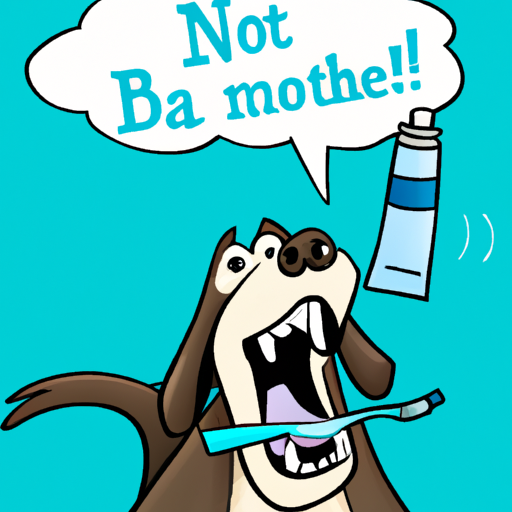Introduction
Hey, there! You’re a dedicated pet parent, right? You pour so much love into caring for your canine companion, but there’s one tiny issue that’s niggling at you: your dog’s breath is less than fresh. Really less than fresh. It’s time to tackle this common problem head on. Are you ready to learn how to cure bad breath in dogs? Let’s dive in.
Understanding the Causes of Bad Breath in Dogs
Firstly, understanding the causes of bad breath in dogs is crucial in creating a cure strategy.
- Diet: Just like humans, the food your dog eats can affect the smell of their breath. Certain foods can cause bad breath more than others.
- Oral Hygiene: Poor oral hygiene can lead to dental disease, which is a common cause of bad breath in dogs.
- Medical Conditions: Certain medical conditions, such as diabetes or kidney disease, can cause bad breath in dogs.
Improving Your Dog’s Diet
An excellent place to start is your dog’s diet. What your pet eats can greatly impact the freshness of their breath.
- High-Quality Dog Food: Avoid cheap dog food filled with fillers and artificial ingredients. Instead, choose high-quality food with natural ingredients.
- Raw Bones: Raw bones can help clean your dog’s teeth naturally, reducing plaque build-up and bad breath.
- Dog-Friendly Veggies: Certain vegetables, like carrots and celery, can help clean your dog’s teeth and freshen their breath.
| Recommended Diet Changes | Benefit |
|---|---|
| High-quality dog food | Improves overall health, reduces bad breath |
| Raw bones | Cleans teeth, reduces plaque |
| Dog-friendly veggies | Cleans teeth, freshens breath |
Prioritizing Dental Hygiene
Just like in people, dental hygiene plays a crucial role in combating bad breath in dogs.
- Brushing: Brushing your dog’s teeth daily is ideal. If that’s not possible, aim for a minimum of three times a week.
- Dental Treats and Toys: These can help clean your dog’s teeth and freshen their breath.
- Professional Cleaning: Consider a professional dental cleaning by a veterinarian if your dog’s breath continues to be an issue.
Seeking Veterinary Care
If your dog’s bad breath persists despite your best efforts, it may be time to seek veterinary care. Your vet can perform a thorough examination and run diagnostic tests to rule out medical conditions that could be causing bad breath.
FAQ
1. How often should I brush my dog’s teeth?
Ideally, you should brush your dog’s teeth every day. However, if this isn’t possible, aim for at least three times a week.
2. Can I use human toothpaste to brush my dog’s teeth?
No, human toothpaste can be harmful to dogs. Always use a dog-friendly toothpaste.
3. What if my dog won’t let me brush their teeth?
You can try using dental treats and toys as an alternative. If your dog still resists, consider seeking professional help.
4. Can bad breath in dogs indicate a serious health problem?
Yes, persistent bad breath can sometimes indicate underlying health problems, such as kidney disease or diabetes. If your dog’s bad breath persists, it’s important to seek veterinary care.
Conclusion
You’re more than a pet owner; you’re a caregiver, a guardian. You want the best for your dog, and that includes tackling issues like bad breath. With the right knowledge and tools, you can ensure your dog’s breath is as fresh as a daisy. Remember, if bad breath persists, never hesitate to seek veterinary help. Your dog’s health and happiness are worth it!



